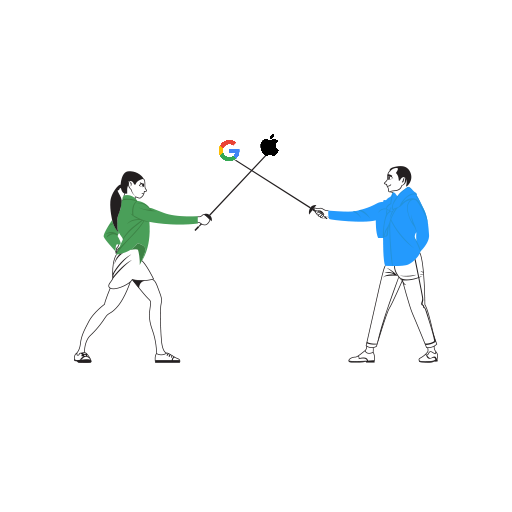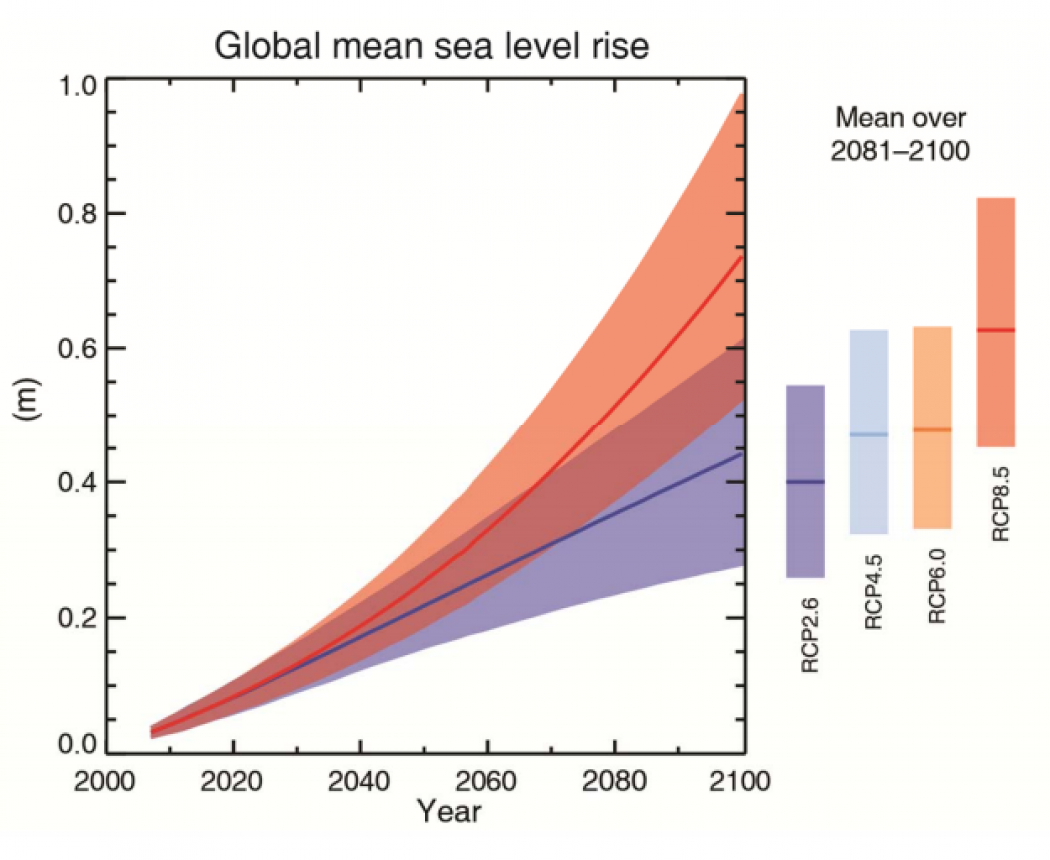Why Apple Might Be Saving Google (And Why It Matters)

Table of Contents
The iOS Ecosystem's Crucial Role in Google's Search Dominance
Google's search engine is synonymous with online search. However, a significant portion of its success hinges on a rather unexpected partner: Apple. Apple's default search engine partnership with Google grants Google unparalleled access to a massive user base. The sheer number of iOS users translates directly into billions of searches conducted daily, contributing significantly to Google's colossal search revenue.
- A significant percentage of iOS users (estimated to be over 90%) utilize Google Search as their default. This default status ensures Google remains the go-to search engine for a vast segment of the population.
- Comparative revenue figures clearly demonstrate Google's reliance on iOS users. While precise figures are confidential, it's widely accepted that the iOS partnership generates a substantial portion of Google's advertising revenue.
- Imagine a scenario where a different search engine becomes the default on iOS. The potential impact on Google's revenue and market share would be catastrophic, highlighting the crucial role Apple plays in maintaining Google's search dominance.
Apple's Hardware Ecosystem Fuels Google's Services Growth
The symbiotic relationship extends beyond search. Apple's hardware ecosystem seamlessly integrates with a wide range of Google services, including Gmail, Google Maps, YouTube, and many others. This deep integration encourages user adoption and fosters dependency on Google's services. The convenience and intuitive experience offered by this integration are crucial for Google’s continued success.
- Examples of Google services deeply integrated into the iOS experience include Gmail's robust notification system and Google Maps' effortless navigation within Apple Maps. This seamless integration makes these services incredibly user-friendly.
- Statistics illustrating the usage of Google services on Apple devices are readily available, albeit often fragmented. These statistics overwhelmingly show significant usage of Google services across various Apple devices.
- If this integration were to suffer, perhaps due to increasing friction between the two companies, Google would undoubtedly experience a substantial loss of market share. This underlines the importance of maintaining a positive working relationship.
The Counter-Intuitive Benefits of Competition
The seemingly contradictory nature of this relationship highlights a crucial point: competition breeds innovation. Apple's existence as a formidable competitor pushes Google to constantly innovate and improve its services. This rivalry benefits consumers immensely.
- Examples of Google services improved due to competition with Apple include Google Photos’ enhanced photo editing capabilities and Google Maps' continuous improvement of its navigation features. The pressure to compete directly influences these improvements.
- This competition fosters innovation that benefits consumers in the form of better products, enhanced user experiences, and a more dynamic technological landscape. The rivalry benefits everyone, not just the companies involved.
- A potential Google monopoly scenario, absent Apple's competition, is a frightening prospect. Without competitive pressure, Google might become complacent, leading to stagnation and potentially harming users.
The Threat of a Shifting Landscape
Despite the apparent benefits, this symbiotic relationship isn't without its risks. Apple's increasing focus on privacy and its potential development of its own search engine present significant challenges to Google.
- Apple's increasing emphasis on privacy could potentially limit data sharing, impacting Google's targeted advertising capabilities. This is a substantial risk for Google's core revenue model.
- Apple developing its own robust search functionality would directly challenge Google's dominance, potentially siphoning off significant market share. This is a serious long-term threat.
- Alternative scenarios, such as increased regulatory scrutiny or a significant shift in user preferences, could also disrupt the current equilibrium. The relationship is not static and could easily shift.
Apple and Google: A Symbiotic Relationship That Matters
In conclusion, the idea of Apple saving Google might seem counterintuitive, but the evidence suggests a surprising interdependence. Apple's platform and user base are crucial for Google's continued dominance in search and other services. Conversely, the competition between them fuels innovation that benefits all users. This complex relationship underscores the intricate dynamics of the tech world and highlights the unforeseen consequences of even the most fierce rivalries. Consider the implications of this dynamic – the potential for disruption is substantial. Discuss the future of this relationship and the broader ramifications for the tech world. How will the ongoing battle between these tech giants affect the future of search and the digital landscape? Let's keep the conversation going about Apple saving Google and its impact.

Featured Posts
-
 Princess Beatrice Reflects On Her Familys Past The Andrew And Fergie Split
May 11, 2025
Princess Beatrice Reflects On Her Familys Past The Andrew And Fergie Split
May 11, 2025 -
 Whos Out Yankees Vs Diamondbacks Injury Report April 1 3
May 11, 2025
Whos Out Yankees Vs Diamondbacks Injury Report April 1 3
May 11, 2025 -
 Accelerating Sea Level Rise A Coastal Crisis
May 11, 2025
Accelerating Sea Level Rise A Coastal Crisis
May 11, 2025 -
 Exploring Montego Bay A Comprehensive Guide
May 11, 2025
Exploring Montego Bay A Comprehensive Guide
May 11, 2025 -
 Sylvester Stallones Participation In Jason Stathams Latest Action Film Expectations Vs Reality
May 11, 2025
Sylvester Stallones Participation In Jason Stathams Latest Action Film Expectations Vs Reality
May 11, 2025
